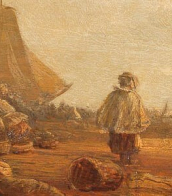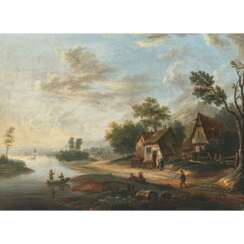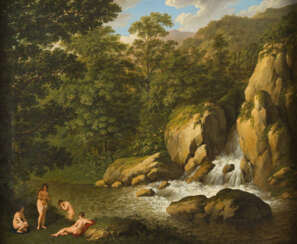Johann Georg Schütz (1755 - 1813) — Auction price
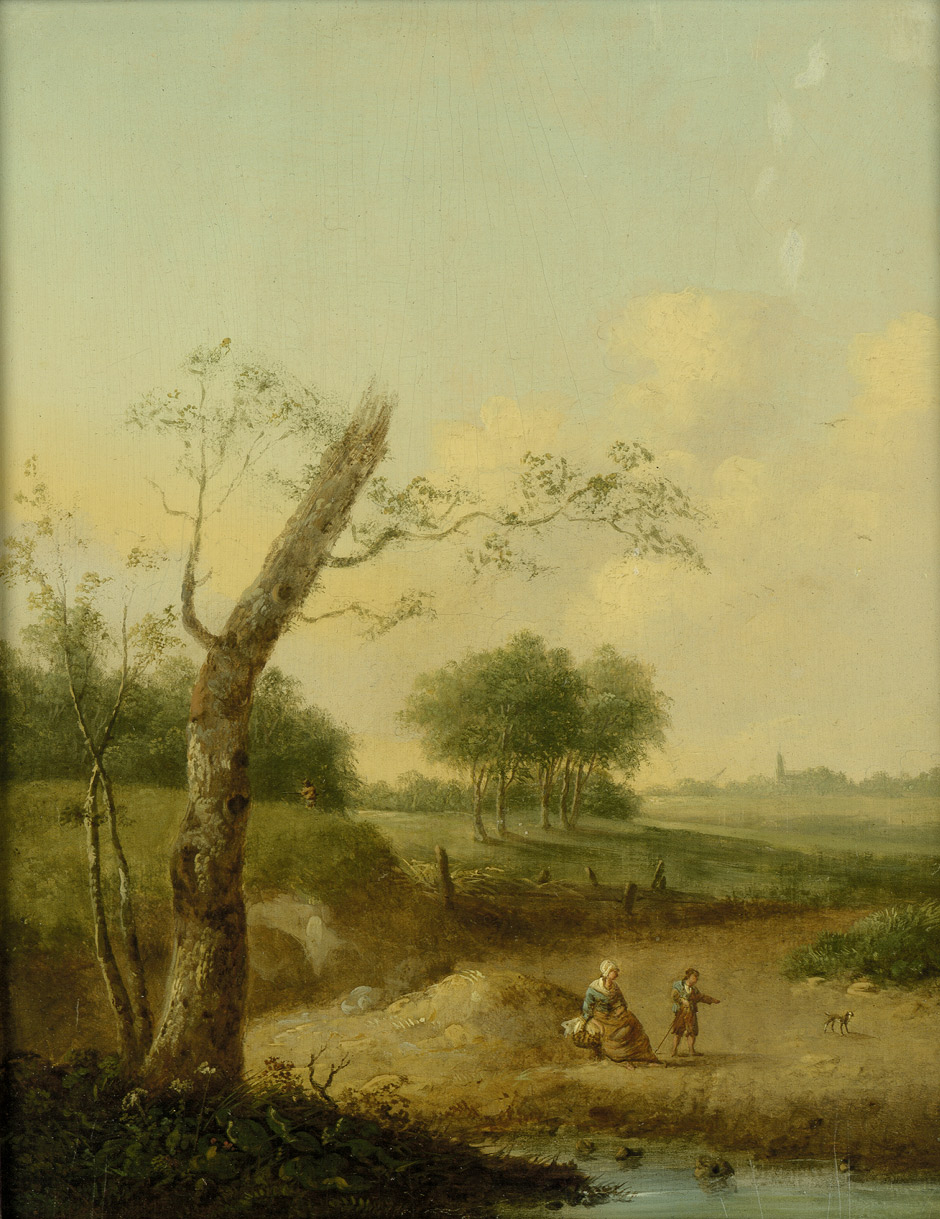
Johann Georg Schütz, born May 16, 1755, in Frankfurt am Main, was a German painter and etcher, recognized for his contributions to landscape painting and portraiture. Schütz was the younger son of the notable Frankfurt painter, Christian Georg Schütz the Elder, and honed his craft in his father's workshop before studying at the Düsseldorf Art Academy.
After initial forays as a landscape painter, Schütz expanded his repertoire to historical scenes and portraits. His sojourn in Rome from 1779 to 1790 placed him in the midst of a community of German-speaking artists, where he encountered Johann Wolfgang von Goethe and contributed illustrations for Goethe's work on the Roman Carnival. Known as "Römer-Schütz" to distinguish him from other family members in the art world, he continued his father's legacy upon his return to Frankfurt.
Schütz passed away in May 1813, leaving behind a collection of drawings and paintings housed at the Historical Museum in Frankfurt. His works continue to be revered by collectors and art historians for their historical significance and craftsmanship.
Discover more about Schütz's artistry by signing up for updates, and delve into the heritage of Frankfurt's distinguished painting tradition.
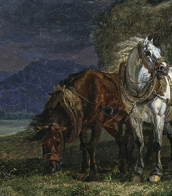

Johann Georg Schütz, born May 16, 1755, in Frankfurt am Main, was a German painter and etcher, recognized for his contributions to landscape painting and portraiture. Schütz was the younger son of the notable Frankfurt painter, Christian Georg Schütz the Elder, and honed his craft in his father's workshop before studying at the Düsseldorf Art Academy.
After initial forays as a landscape painter, Schütz expanded his repertoire to historical scenes and portraits. His sojourn in Rome from 1779 to 1790 placed him in the midst of a community of German-speaking artists, where he encountered Johann Wolfgang von Goethe and contributed illustrations for Goethe's work on the Roman Carnival. Known as "Römer-Schütz" to distinguish him from other family members in the art world, he continued his father's legacy upon his return to Frankfurt.
Schütz passed away in May 1813, leaving behind a collection of drawings and paintings housed at the Historical Museum in Frankfurt. His works continue to be revered by collectors and art historians for their historical significance and craftsmanship.
Discover more about Schütz's artistry by signing up for updates, and delve into the heritage of Frankfurt's distinguished painting tradition.
